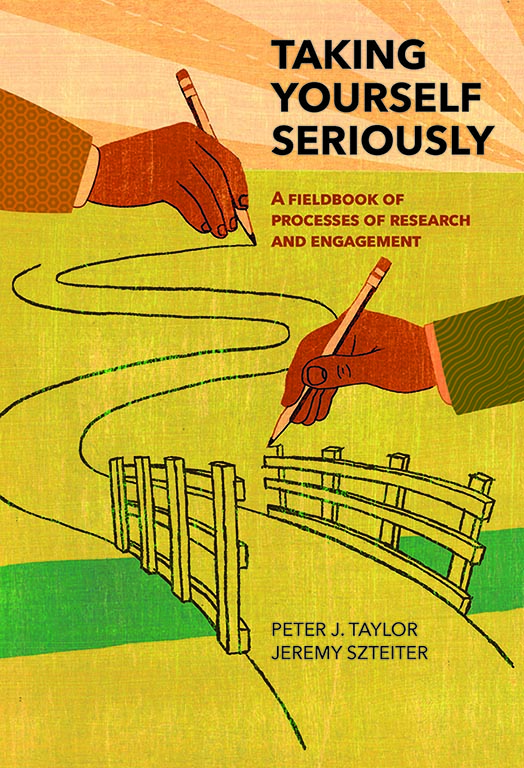A book of tools and processes to help readers in all fields develop as researchers, writers, workshop facilitators, and agents of change

Purchases. More details
Continue reading
Tag Archives: refractive practice
“What’s the use of it?” (PBL in graduate education)
Is project-based learning (PBL) in graduate education useful? asked a very productive and engaged researcher and teacher. Some responses and further questions:
1. PBL allows some students to identify paths that they want to follow, in contrast to doing what they think they should be doing (or think that other people think they should be doing). In this sense PBL is a form of “refractive practice” (http://wp.me/p1gwfa-sr), in which we stop and take stock (through reflection, dialogue, and other processes), and thereby
“prepar[e] for any step before proceeding either:
- from one phase to another,
- on from an activity or event,
- into dialogue with others, or
- at a branch point, when choosing an activity or path to pursue.”
Recurrent episodes or even creative habits of refractive practice provide opportunities to “not simply continue along previous lines.” PBL is useful to the extent that continuing along previous lines keeps us on paths that, in the end, we are not happy with, or that we would have preferred to have diverged from.
2. PBL courses are a form of “CPR space,” where CPR stands for connecting, probing, and reflecting, which “while keeping in view the realms of critical academic work and participation in social movements, is separate from them” (http://wp.me/p1gwfa-uB). This is useful for the same reasons as in #1.

3. The tools and processes used in refractive practice and creating CPR spaces provide models for adoption and adaption into other areas of work and life.
4. The experience of participation and collaboration in PBL courses “buoys participants’ enthusiasm, hope, resolve, and courage for creating change and making transitions in situations that may–at least at first–feel far from the spirit of the [course]” (http://wp.me/p1gwfa-uB).
5. This last claim–or hope–warrants scrutiny. From http://wp.me/p1gwfa-tz:
A few years ago an experienced facilitator admonished me not to think too much about how to support the translation into everyday work and life of tools and processes introduced in a workshop setting. The advice was to the effect that tools and processes are taken up only if they are introduced in actual work settings.
In contrast to dominant theories of innovation and diffusion of innovations,
the default situation [becomes] one in which people are entangled, but open to change through new encounters. Efforts to innovate outside those contexts can be seen as stepping away from entanglements. What do people (such as myself) lose by positioning themselves in that way?
(Contrasting diagrams: conventional, entangled)
Taking stock as an ethical imperative
Recently I stated a feeling that taking stock of any group interaction (including a class, a workshop, a meeting) is an ethical imperative. After thinking through how to support that notion, as laid out below, I have concluded that the ethic of taking stock derives from the ideal that people should not be coerced.
Continue reading
Addressing responses to my introductions of tools and processes of refractive practice
Response 1: “I like to experiment and play with new tools and processes. I then set out to learn more if the first experience intrigues me, then I find ways to practice the tools and processes in my real-life work.”
Addressing response 1: That is my personal response as well, so it colors what I hope for in others.
Response 2. “I want what I do and any changes that I make to my practice to count, that is, to relate to some engagement that matters to me and others.”
(This recalls advice given to me not to try to teach tools and processes outside of an actual work situation.)
Yes, but:
Continue reading
